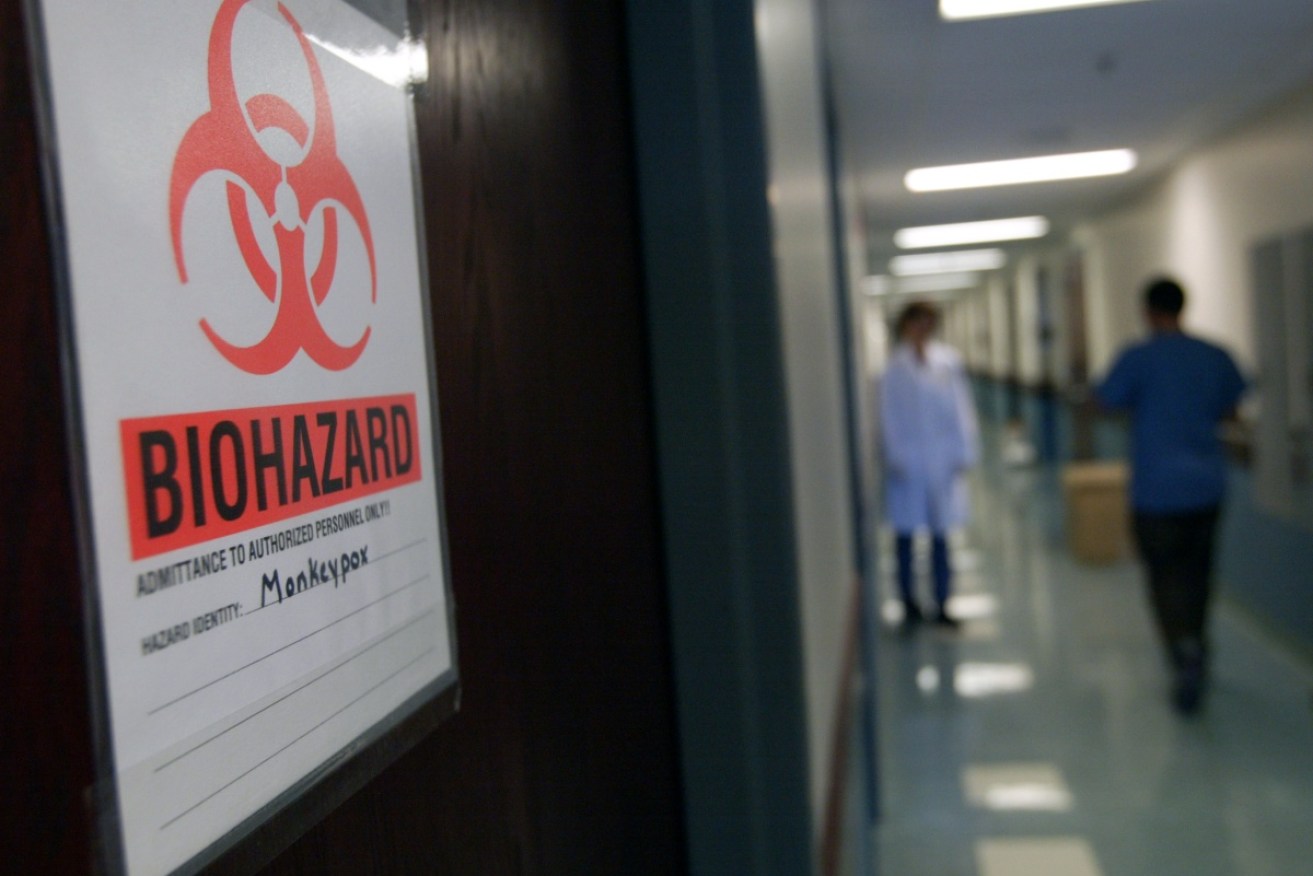Belgium orders 21-day quarantine for monkeypox patients


Belgium has ordered anyone confirmed with monkeypox to go into quarantine for three weeks. Photo: Getty
Belgium has become the first country to impose mandatory quarantine on people that have monkeypox, with four cases of the worrying disease diagnosed in the small European nation in the past week.
Belgian health authorities announced at the weekend that 21 days of mandatory quarantine would be imposed on anyone diagnosed with the virus.
Contacts of those who have the disease are not required to self-isolate, but have been told to remain vigilant, particularly if they have contact with vulnerable people.
More than 100 cases of monkeypox – a virus in the same family as smallpox – have so far been diagnosed around the world. They include two in Australia.
Other countries to report the disease include Britain, Portugal, Sweden, Italy, Spain, France, Belgium, Germany, the US and Canada. The World Health Organisation said it expected the outbreak to continue to grow.
“The situation is evolving and WHO expects there will be more cases of monkeypox identified as surveillance expands in non-endemic countries,” it said.
Monkeypox is less deadly than smallpox, with a mortality rate below 4 per cent. But the latest outbreak has experts worried, but it is its first significant spread outside Africa.
The disease causes a distinct bumpy rash, a fever, sore muscles, and a headache.
The Belgian Institute of Tropical Medicine said the risks of a larger outbreak in the country were low. Emmanuel Andre, who heads the country’s National Reference lab for COVID-19, confirmed the fourth case on Saturday (local time).
“This patient is being treated in Wallonia and is linked to the Antwerp event in which two other people were infected,” he tweeted referring to a festival in the port city held in May.
In the US, Dr Ashish Jha, the White House COVID-19 response coordinator, said he expected “a few more” cases of monkeypox in coming days.
“But I feel like this is a virus we understand, we have vaccines against it, we have treatments against it, and it’s spread very differently than SARS-CoV-2” – the virus that causes COVID, he told the US’s ABC on Sunday.
“It’s not as contagious as COVID. So I am confident we’re going to be able to keep our arms around it,” Dr Jha said.
“But we’ll track it very closely and use the tools we have to make sure we can continue to prevent further spread and take care of the people who get infected.
“Health experts say close contact with an infected person is required to spread the monkeypox virus.”
Historically, monkeypox outbreaks have typically been confined to western or central Africa.
“We have a level of scientific concern about what we’re seeing because this is a very unusual situation,” US Centres for Disease Control spokeswoman Jennifer McQuiston told CNN on Thursday.
“We don’t see it in the United States or in Europe – and the number of cases that are being reported is definitely outside the level of normal for what we would see.”
In Britain, Susan Hopkins, the chief medical adviser for the country’s Health Security Agency, told the BBC on Sunday that people should be aware of monkeypox – but that the risk to the general population “remains extremely low at the moment”.
“I think people need to be alert to it,” she said.
“We really want clinicians to be alert to it and send the test if they’re concerned.”








